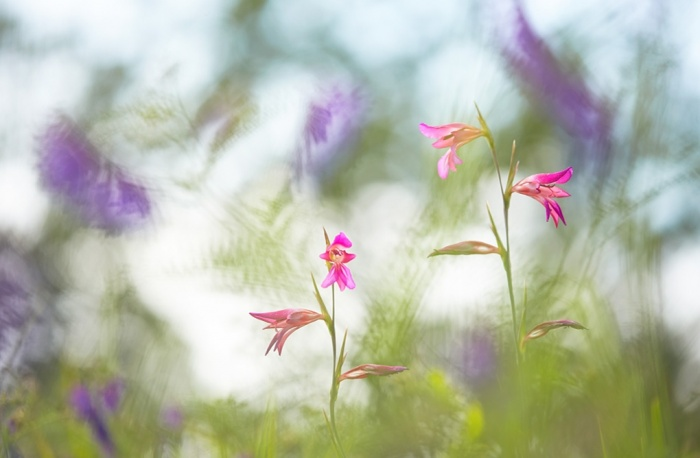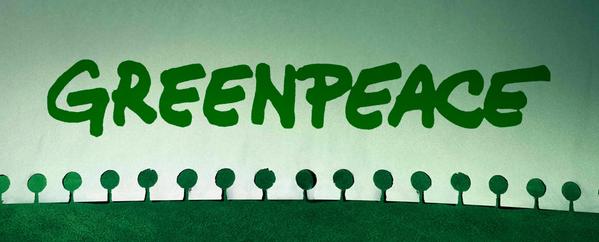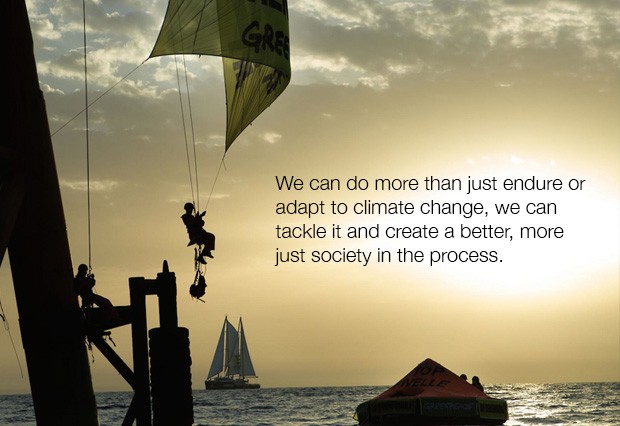
Photo: Klaus Tamm/GDT Nature Photographer of the year 2015
Not long ago I posted a Blog Nature the Best Teacher: Re-Connecting the World’s Children with Nature where I noted that if we wish to build a better, more sustainable world, and to enable people to lead a happier, more content and peaceful life, then, we should try to learn from our wisest teacher, nature.
Today I was reading a very interesting and eloquent article by John Sauven, director of Greenpeace, very relevant to what I have been writing, namely, that we should respect nature, learn from its wisdom, and then be guided by it in our daily lives. Due to its importance to the crises our world is facing, I very much wish to share the gist of this article with you.
A Greenpeace Manifesto for Change

Our planet is maybe the only place in the universe where life exists. It is a precious thing, and it must be protected and nurtured, not torn apart for the short-term gain of a few. Humans are a force of nature, but we are a conscious force and we can use our power for good. We are not spectators, we are players, and we can shape the game, all of us together. It is time for all of us to see humanity for what it is: as a single species, interdependent on other species and the one, finite and beautiful planet we live on.
A manifesto for a more sustainable world

Photo: greenpeace.org.uk
”For the last 10,000 years – a period that has seen the birth and flourishing of human civilisation – we have been living through the Holocene epoch. But there is an emerging consensus that this epoch may now be over, superseded by a new age: the Anthropocene. The age of humans.
The reason for this change is stark: our actions – colonialism, global trade, and coal – have had such a huge and decisive impact on the Earth that humans have become a geological force in their own right. But the destructive reality of this new epoch has only really hit home in the last half century.
Since 1950 we have seen an unprecedented global rise in the human population, accelerating extinction and climate change, urbanisation and industrialisation and the development of novel materials from persistent organic pollutants to genetically engineered organisms. Extinction rates are currently running at between 100 and 1,000 times the natural level. Even nuclear bomb tests have left their radioactive traces in tree-rings.
Today, we humans are eating away at our own life support systems at an unprecedented rate. What’s more, we are living in turbulent political times across the globe. Politics is broken and business-as-usual is taking us in the wrong direction. But what can be done?
Escaping old ideas, as Keynes said, is difficult. When ideas and concepts that benefit or represent one powerful group of people at the expense of the majority are universalised, they become the norms that shape our thinking: they become what’s ‘common sense’ and ‘natural’. We end up accepting a simplistic and beguiling mantra: more growth, more profits, more stuff. And, with it, the consequences: more climate change, more chaos, more extinction, more inequality. Create enough zeroes in the right places and you can make a desert and still call it progress. Meanwhile, the real stuff of life – the quality of the food we eat, the water we drink, the air we breathe and the landscapes we live in – is often dismissed as the niche concerns of naïve and privileged idealists. This is where we are now.
Such distorted priorities have led us directly to the current destructive system. But we are conscious agents of the current destruction, and in that consciousness lies hope for the future. We know the damage we are doing, and we know we should and can do things differently. The challenge is to agree on how to use our powers for the common good.
We need a broad and deep change to the current economic and political paradigm. We need to challenge those old values and develop new ones more appropriate for living in the Anthropocene – values that support conscious, active stewardship in an interlinked world. This in turn will depend on the mobilisation and empowerment of people across the world. We need a society in which government is answerable to people and corporations are answerable to government. That society is not going to build itself from above. The Arab Spring and the Occupy movements may have faded after their huge initial impacts, but ‘we are the 99%’ has become a rallying cry on almost every continent.
We know how we can prevent the worst of climate change, rejuvenate soils, protect fish stocks. We know how we can create a more just society, how to build a better education system, give people clean water, provide human rights for all. These are not mysteries. We have the technology and the ability and the knowledge. What we are lacking is the will to make real political and social change.
The only thing that will instigate that change is if enough of us are willing and have the courage to act together to build a more sustainable world.”
*Read the original article which was first published I the Guardian on 1 May 2015:
A manifesto for a more sustainable world | John Sauven | Environment | The Guardian
Read more:
A Greenpeace Manifesto for Change | Greenpeace UK
Further reading:
Paradise Lost: Why are we turning our paradise into hell?
Nature is the model to teach business how to thrive
Biomimicry: Learning from Nature
In Praise of ‘Enoughness’ and 'Lagomist' Economy
Has loneliness become the new normal?
